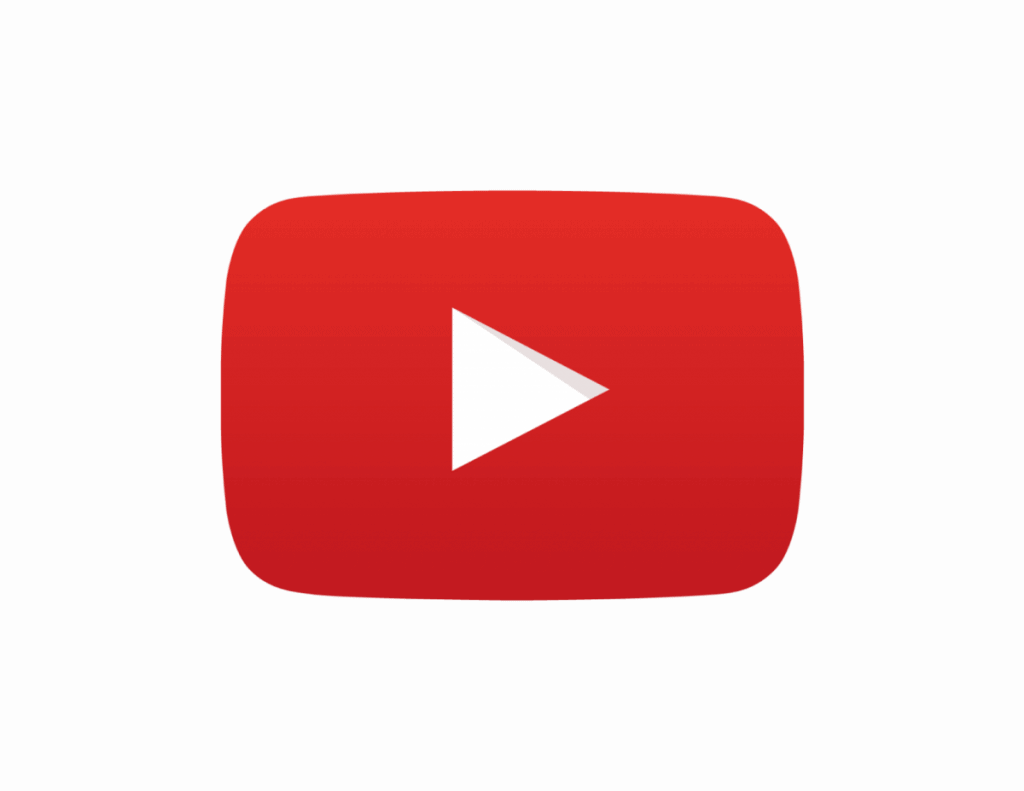You may have heard that rubbing alcohol is a great way to stimulate beard growth. This common advice is far from the truth.
I have never applied rubbing alcohol to my beard and I suggest that you do not do it either.
Rubbing alcohol is not good for beard growth as it can dry out the skin and the beard hair causing brittleness and extreme breakage. Applied in high amounts, it can even cause chemical burns and nausea and other symptoms.
The rubbing alcohol may feel like it is doing something to your skin because of the cooling sensation that you feel as it evaporates away from your skin’s surface.
Some people misdiagnose this effect as stimulation. When, in fact, it is simply drying out your skin by wicking away the moisture from the surface and depths of your skin and hair.
If rubbing alcohol is included in your beard products (to enhance the absorption into the beard hair), you need to use it very carefully and in limited amounts. Unless the manufacturer has got the formulation perfectly balanced, it could leave your beard dryer than before you used the product.
Article Contents
What is rubbing alcohol?
Rubbing alcohol is either isopropyl alcohol or an ethanol-based liquid. In the UK, where I am originally from, it is called surgical spirit. Rubbing alcohol is denatured (which means that it has additives in it to make it poisonous, bad tasting, foul-smelling, or disgusting to discourage recreational consumption).
Every rubbing alcohol sold is volatile (which means they evaporate easily) and extremely flammable. Isopropyl alcohol rubbing alcohol contains about 50% to 99% isopropyl alcohol, with the remainder being water. It is naturally colourless but may contain colour additives. They may also contain medically inactive additives such as fragrance for other purposes and make it smell nicer when used.
Rubbing alcohol can also be included in some beard products because it can help the absorption of some chemicals into the hair and skin. This inclusion is quite common in minoxidil formulations, where they need strong and deep penetration deep into the skin.
Is rubbing alcohol bad for your beard?
Rubbing alcohol has several really bad effects and actions on your beard. From dryness to tightening up your pause in your skin – you should use any product with isopropyl alcohol with caution.
Dryness
Rubbing alcohol has a very powerful drying effect on your beard.
Rubbing alcohol is used to remove dirt and grime from surfaces. As a cleaning agent, it will quickly dissolve sticky residues, greases, and oils. The oils in your beard are very important for keeping it looking healthy and shiny.
In repeated use and extreme cases, the drying effect is so bad that it can leave your hair very brittle.
The brittleness will cause much more breakage and cracking of the beard hair and is very likely if you are using your isopropyl alcohol on your beard and allowing it to dry after application fully.
Because some beard care products have isopropyl alcohol as an ingredient, they may have some detectable drying effects.
In a 1995 experiment where they were looking at the penetration enhancing effects of isopropyl alcohol in combination with topical addition of minoxidil, they found that dryness of the skin was detected in nearly all of the monkeys to which they applied the mixture.
If you want to know more ways of fixing a dry beard check out my other article – 16+ dry beard solutions.
Increased absorption
Isopropyl alcohol is used in some formulations of medicated beard products to increase the absorption of other substances deep into the hair follicles. It is a common ingredient in hair colours and dies because of this property.
This reason is why you should be very careful about using dies on your beard. Even though the dye penetrates deeply into your beard hair, it can dry out the beard.
Some products even contain isopropyl alcohol to aid in the absorption of moisturiser ingredients. The addition of isopropyl alcohol should be carefully balanced with the moisturiser ingredient. Even if there is only a very small amount of isopropyl alcohol, it can end up leaving your hair dryer than when you applied the moisturising product.
What to do if you get rubbing alcohol on your beard?
If you get rubbing alcohol on your beard, I recommend rinsing it immediately with water. Isopropyl alcohol is soluble in water, and a very quick rinse, even with cold water, will remove the majority of the substance.
If you have got a lot of alcohol in your beard, it has likely stripped your beard of all the natural oils that your face has produced.
You should use beard butter, bile, and oil as soon as possible to restore moisture and deep conditioning to your beard hair.
I recommend leaving a conditioner on your beard for at least 30 minutes if your beard has come into contact with any alcohol that will strip its natural oils.
Does rubbing alcohol make beard hair grow?
There is no evidence to suggest that rubbing alcohol will help make hair grow. At best, the rubbing alcohol will dry out your existing hair and skin. And at worst, it could end up getting into your eyes and causing you to feel dizzy due to the inhalation of fumes.
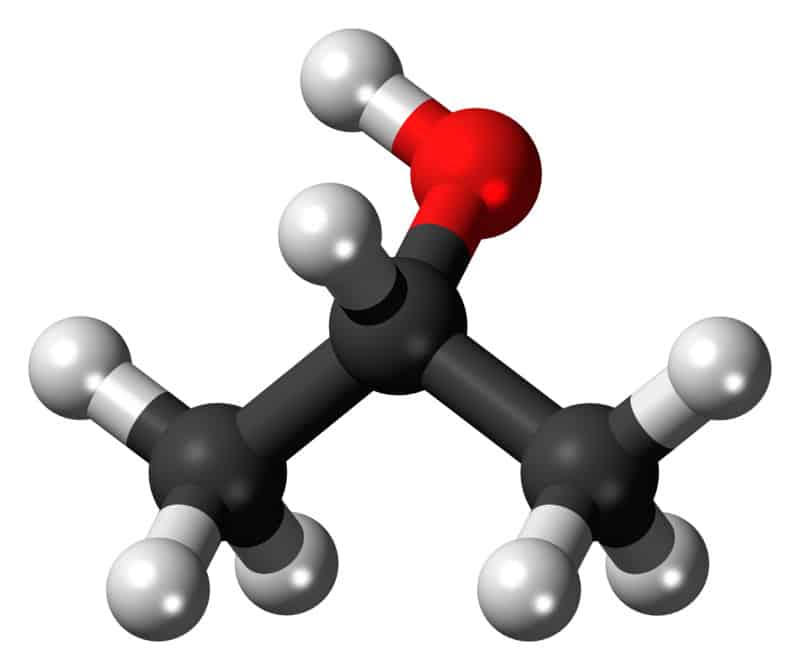
The growth of your beard depends on genetics, general health, ethnicity, and a wide variety of other factors.
As teenage boys enter puberty, testosterone gets produced in the testes and stimulates facial hair growth. The facial hair grows longer and becomes thicker due to the effect of testosterone on the hair follicles. Before that, there was hair present, but it was faint and thin.
Hair follicles on the face are sensitive to testosterone and another chemical – dihydrotestosterone (DHT). DHT is produced from testosterone after it is metabolised by an enzyme called 5-alpha reductase.
Without DHT, there is no beard.
However, there are genetic factors at play that determine the levels of testosterone in the body and how sensitive the hair follicle is to DHT and testosterone.
If you want to know more about how you can stimulate beard growth, check out my other article – click here where I go through everything you need to know about supplements, diet, sleep, exercise, minoxidil, micro-needling and more.
Dangers of rubbing alcohol
If you consider using isopropyl alcohol on your beard, or you have isopropyl alcohol in some of your beard products, you should be very careful about its use. Let’s have a look at some of the dangers of using rubbing alcohol for cosmetic purposes.
Inhalation risk
Any Substancewhich evaporates easily – such as rubbing alcohol – can result in an inhalation risk. Constantly breathing in rubbing alcohol fumes could result in dizziness, nausea and cause you to pass out. If you are using rubbing alcohol regularly, you should use it in a well-ventilated area and wear a mask if you are using it for prolonged periods.
It is unlikely that your beard product will contain this level of isopropyl alcohol. Still, if you decide to use pure isopropyl alcohol on your beard, you expose yourself to a much greater inhalation risk.
It is flammable
Rubbing alcohol is extremely flammable. You must keep it away from open flames and heat tools such as beard straighteners and hairdryers when you use them. When used as a solvent, it is important to remember that the isopropyl alcohol can catch the light at high purity even at a very cool temperature.
It contains poisonous additives
Rubbing alcohol is likely to contain additives that will stop people from consuming it to get drunk. These types of alcohols are called denatured alcohols and have very toxic and bitter-tasting substances added into the mixture.
Consuming a large amount of this alcohol can result in blindness or death. Substances like denatonium are often added to the rubbing alcohol to make it extremely bitter.
Chemical burns
If you try to use your isopropyl alcohol on your beard, you could have chemical burns on your skin. Likewise, any absorption into the skin may result in toxic symptoms if enough is absorbed over a short time.
Other uses of isopropyl alcohol
if you have isopropyl alcohol or rubbing alcohol in your house, there are many household and medical uses –don’t use it on your beard.
Medically, it is used as an anti-septic and a surface disinfectant. In-home remedies can be used to tighten up the pores on your face, be used as a deodorant, evaporate water from the ear, and remove muscle aches and pains.
It is also used in household cleaning to remove stickers, grease and grime, help clean jewellery, deodorise shoes, and much more.
Summary
This article has gone over why you should avoid rubbing alcohol on your face or beard.
It is a very powerful substance that can leave your beard dry and much more prone to damage. It does not increase beard growth and it has some potential dangers, including the risk of fire, inhalation risk and nausea, and poisoning and chemical burns.
I highly recommend that you stick with other products which have been tested and will not leave your beard in bad condition.
If you want to know more about alcohol and its effects on your beard, I recommend you go and check out my other article – click here – is alcohol bad for a beard?
I go through everything you need to worry about, including hormonal imbalance, oestrogen and thyroid problems, and reverse the alcohol effects on a beard.

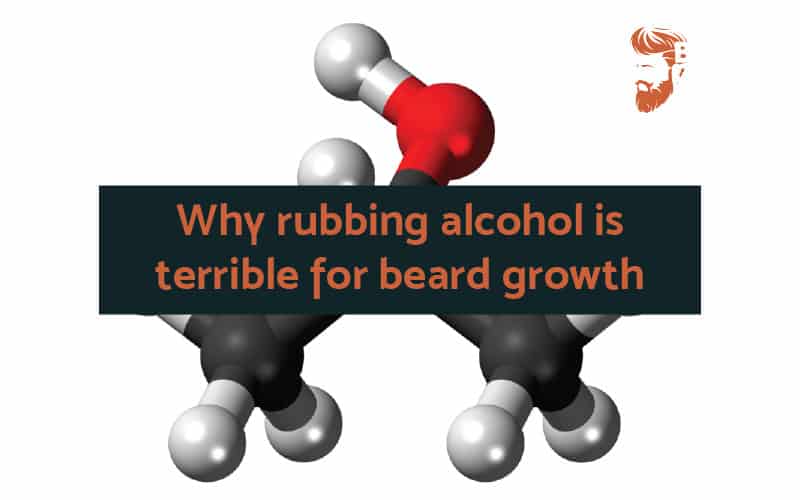
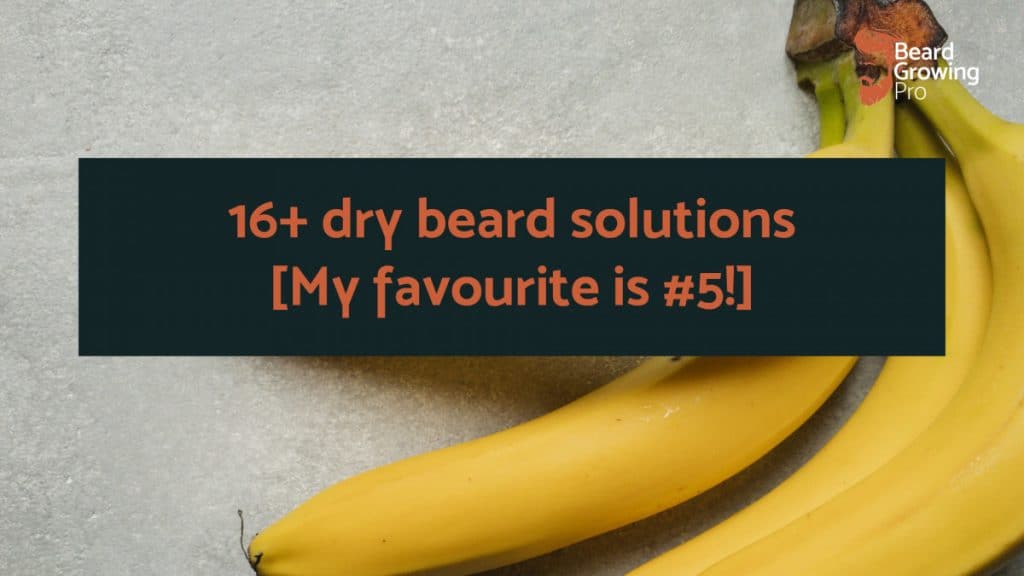
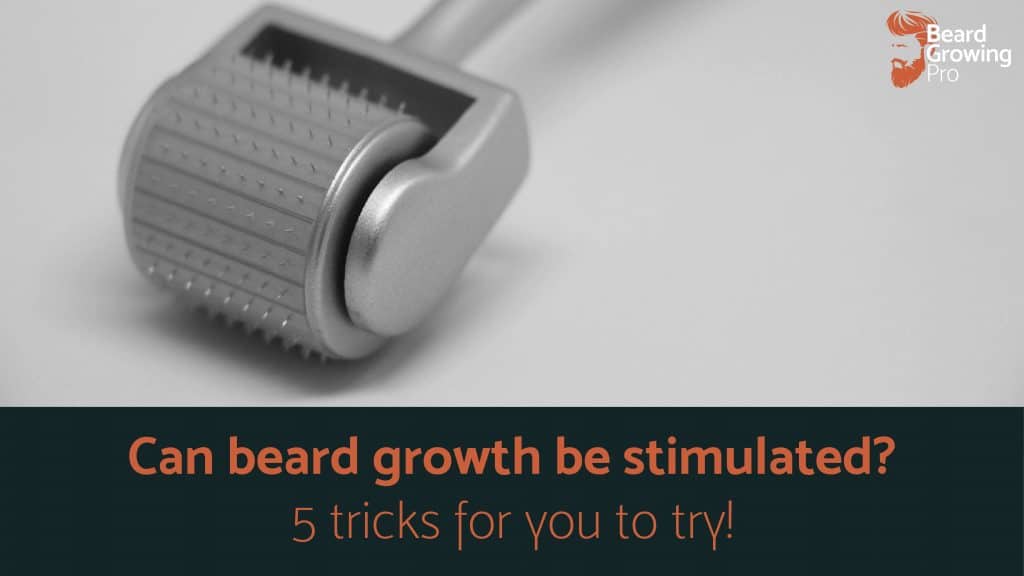
![Why alcohol is terrible for a beard [The strange effects]](https://beardgrowingpro.com/wp-content/uploads/2021/10/Why-alcohol-is-terrible-for-a-beard.jpg)

